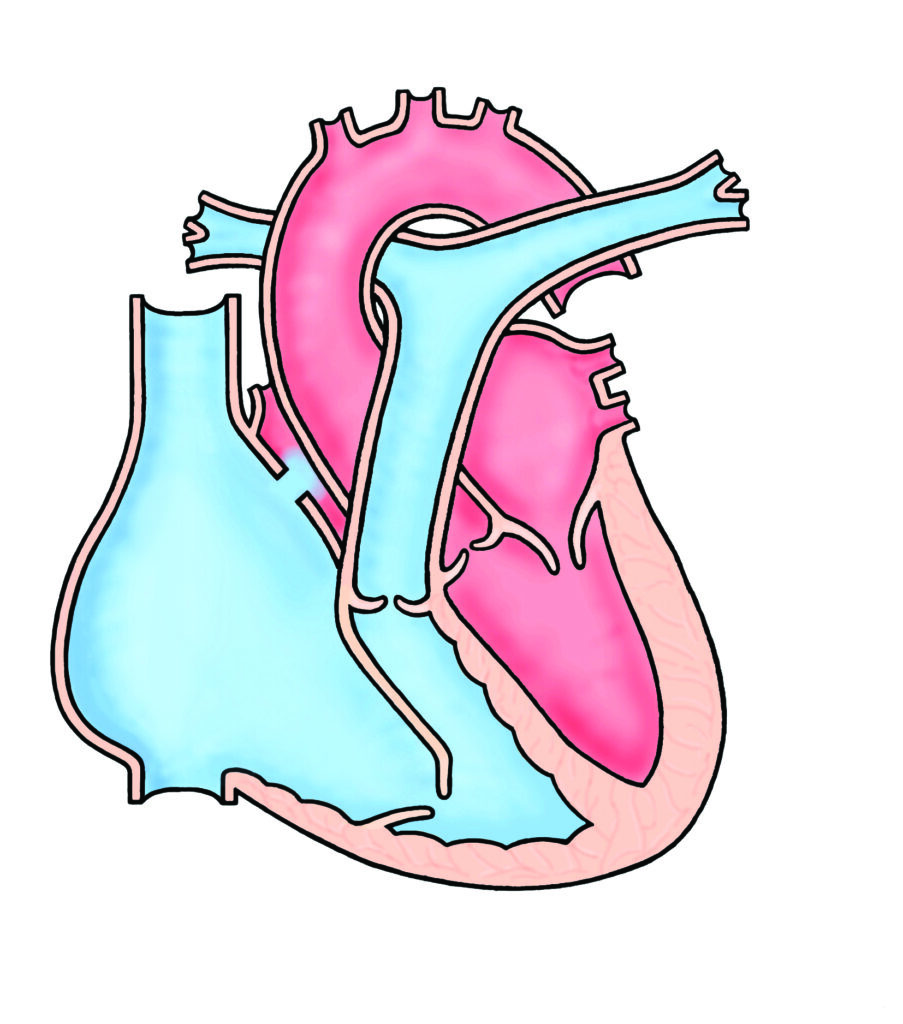This leaflet aims to give you information about a congenital heart condition called Ebstein’s Anomaly and its management.


What is it?
Ebstein’s anomaly is an abnormality of the tricuspid valve that you were born with. The valve leaks and is displaced (moved) towards the bottom of the heart. There is often a small hole in the heart too. Many people with Ebstein’s anomaly can also have troublesome heart rhythm problems.
Ebstein’s anomaly varies from very mild forms of the condition to very severe forms. The treatment usually depends on how affected your heart is by the Ebstein’s anomaly.
What symptoms may I get?
You may feel more breathless and tired than your peers when you exercise. Some patients leak a little blue blood across the hole in their heart causing oxygen levels in the blood to be a little lower than normal when they exercise. This can also increase your risk of a stroke. Many patients will experience changes in their heart rhythm or ‘palpitations’. These might feel like a bump, flutter or a racing heart. Some very severely affected patients develop swelling of the abdomen and legs due to the build up of fluid.
What treatments are available?
Many patients require no treatment at all. Palpitations and swelling due to fluid can often be treated with medicines. Sometimes we become more concerned about palpitations and will suggest that you have an electrophysiology catheter study to pinpoint the origin of the abnormal heart rhythm. This is an electrical activity recording which we take from the inside of your heart through a keyhole procedure. The abnormal heart rhythm may then be treated by an ‘ablation procedure’ which involves applying hot or cold energy to the affected heart muscle. Other treatments for disturbances of the heart rhythm may include a pacemaker insertion.
We may consider medications to thin the blood to reduce the risk of blood clots that may go across the small hole in your heart. If you have had a stroke or go particularly blue, due to low oxygen in the blood, we may suggest a keyhole procedure to close the small hole. If your tricuspid valve is very severely affected and leaky, sometimes we operate to repair or replace the abnormal heart valve.
Insurance
It can be difficult for people with congenital heart disease to get some types of insurance. Travel insurance may be more expensive and people who have congenital heart disease often struggle to get any type of life insurance.
There are some more sympathetic insurers who can be identified and contacted through the Somerville Heart Foundation. We would recommend seeking advice from a specialist insurance advisor before applying for life insurance.
Pregnancy and contraception
If you are thinking about having a baby you should see your cardiologist before becoming pregnant to discuss this as the risks will be different depending on the severity of you heart condition. Your cardiologist or specialist nurse will be able to give you advice regarding the best form of contraception to use to avoid getting pregnant.
The chance of having a child born with a heart problem is slightly higher than normal because you have a heart problem yourself. We can offer a specialised scan of your unborn baby’s heart at 18-20 weeks, which can detect any major abnormality of the heart. Your cardiologist will be happy to discuss this with you.
Endocarditis
All patients with congenital heart disease are at risk of infection in the heart (endocarditis). This is commonly caused by bacteria in the mouth which enters the blood stream and travels to the heart. It is very important to practice good dental hygiene and visit the dentist every 12 months.
You now require antibiotic cover for invasive dental treatment if you have had your tricuspid valve replaced. Please ask your doctor or specialist nurse for more information. Due to the increased risk of infection we would also advise against body piercing and tattoos.
Contact us
Please visit our website: